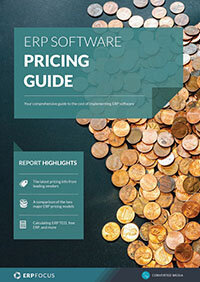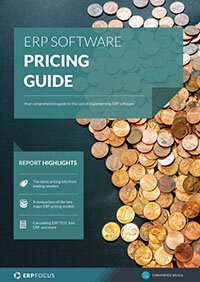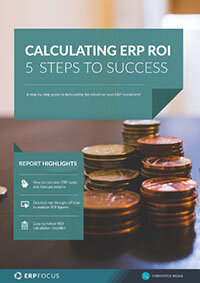ERP budgeting best practices: how to ensure new software doesn't break the bank
ERP operational costs should always be seen as frangible business elements that tend to grow, rather than contract, day-after-day. Consequently, solid cost planning should become the management rule, rather than the exception, from the day that a system begins to spin up.
However, first let’s take a look at some statistics that articulate why you MUST budget your ERP effectively; or else. According to a recent Softwarethinktank analysis the following budget failures harbored the following negative cost impacts:
The firm surveyed 246 organizations that had completed an ERP implementation within the past year. Among those implementations:
- 35% were over budget by 0%-25%
- 15% were over budget by 26%-50%
- 6% were over budget by more than 50%
Now, note that as a rule the average minimum cost to mount and launch an effective enterprise ERP effort is $100,000. So, let’s take a look at real dollar impacts associated with each of the aforementioned sets of negative percentiles.
- 35% over budget by 0%-25%; or $25,000 max, resolving to $125,000
- 15% over budget by 26%-50%; or $50,000 max, resolving to 150,000
- 6% over budget by 50% plus; or $75,000 max, resolving to $175,000
Effective ERP budget management is essential
The point I’m trying to make is that, together, missed budgets amounted to $150,000 in sudden or planned-for ERP costs in these studies. And depending on the company and its operational needs, these can make the difference between completing the ERP round, or simply abandoning the entire thing due to cost reruns.
Use this software pricing guide to help plan your ERP budget accurately
Consequently, the heightened discipline required to budget effectively in the case of ERP platforms is both significant, not to be taken lightly. That said, here are several ways to help ensure that you manage an ERP budget efficiently.
- Assume that the budgeted cost of an ERP launch and spin-up will require at least 1% of an enterprise’s annual gross revenue. Consequently, if you operate a $10 million firm, you should plan to budget $100,000 at minimum. Subsequently, then, larger firms will experience their own minimum, and much higher cost projections such as $5 million for a $500 million company. Again these on the short-side of the cost scale, but if you have more to spend; spend it. But never under cut yourself unless you fancy crashing sooner rather than later.
- Workforce costs are management-critical elements when it comes to ERP platforms. Typical large-scale firms allot $100,000 per employee, per year during the first two years of operation, in order to subsume necessary training and affiliated operational costs. So if your ERP project plans for the utilization of 20 seats, you should project $2 million, just to handle the additional cost. Again, this is over and above other nominal workforce costs. Granted as the ERP system begins to move forward along its lifecycle, these workforce costs will go down. But in the beginning plan for more, not less budget just to be sure that you have enough staff budget overhead to get the job done.
These two methods represent only the tip of an enormous iceberg, but once again, plan for more ERP budget headroom if possible. On the other hand, however, if you don’t, that lack of capability alone may indicate that your ERP project is not ready for prime time, and if the red flag is flying, better to stop and fight another day.
Free white paper

ERP Software Pricing Guide
Get the latest pricing information on over 80 popular ERP systems, and learn how to budget for your ERP project in our free guide

Featured white papers
-

Calculating ERP ROI: 5 steps to success
Calculate your new ERP's financial benefits with this comprehensive guide
Download
Related articles
-

Budgeting for an ERP consultant
How much can you expect to pay out for an ERP consultant?
-

CMMC Compliance: What Aerospace and Defense Manufacturers Need to Know
Key insights on CMMC compliance, deadlines, and securing DoD contracts with CMMC 2.0 certificatio...
-

How much does ERP cost? (Free ERP cost and budget guide)
How much does an ERP system cost in 2025? Everything you need to make an ERP software budget

